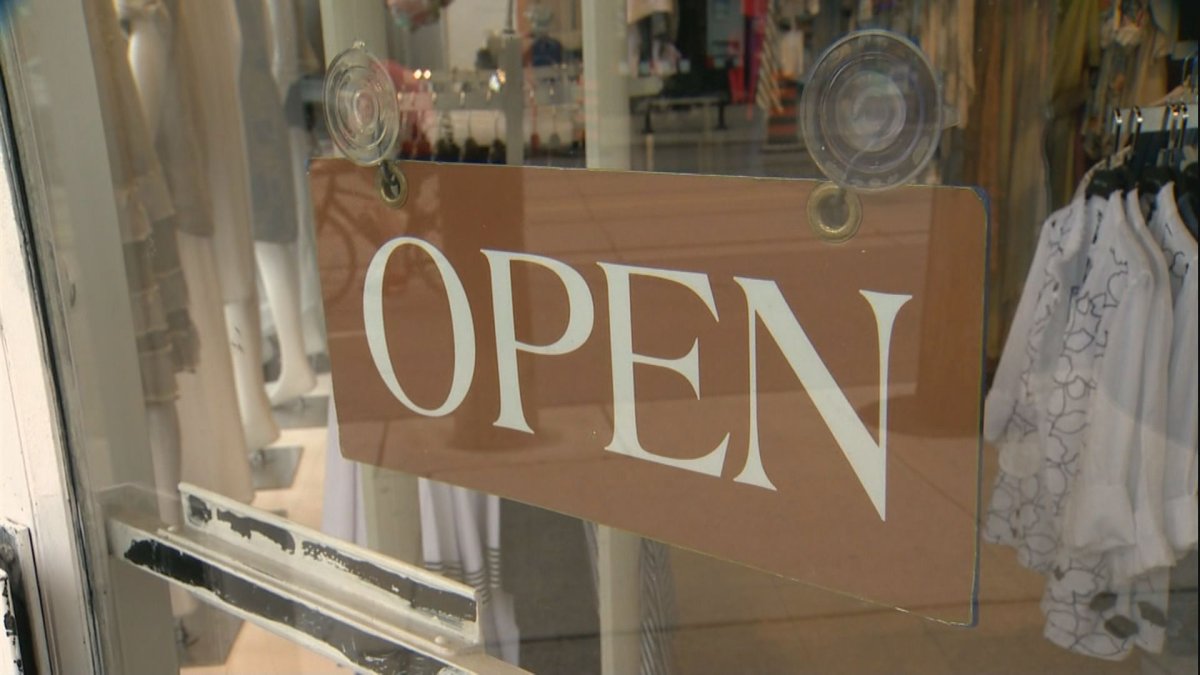Don Van Dale was eager to throw open the doors of the Dakota Lanes bowling alley Monday for the first time in two months.

The Winnipeg alley, along with recreation centres, bars, dine-in restaurants and many other businesses, was allowed to reopen as the Manitoba government eased more restrictions that had been put in place to fight COVID-19.
“We’re quite happy that actually I can make some money and pay my rent, because the rent hasn’t really stopped,” Van Dale said.
It wasn’t quite a return to normal. Movie theatres, concert halls and other larger venues must still remain closed. And businesses that can reopen must operate at reduced capacity and ensure physical distancing between staff and customers.
At Dakota Lanes, bowlers are asked to make reservations in advance and are offered disposable cloth bowling shoes. Extra staff are on hand to sanitize everything and control customer flow at the door.

“For half capacity we’re going to need more staff,” Van Dale said. “I figure our staff is going to go up 25 per cent.”

Get weekly health news
Restaurants that had been restricted to takeout and patio service can now allow indoor dining at half capacity. Bars that reopen have to stick to that restriction as well. Common areas such as dance floors, pool tables and video lottery terminals must remain closed.
The Manitoba Hotel Association, which represents many small hotels with bars, said the limits are making some of its members hesitant to reopen because of worries customers might not come back.
“If there are no (video lottery) machines on, then people aren’t going in there just to sit there and stare at the wall and have a drink,” said association president Scott Jocelyn.

Monday marked the second phase of the government’s relaunch of services after few new infections in recent weeks.
There were no new COVID-19 cases Monday and the three that were reported last week were all travel-related — two truckers and a temporary foreign worker who had followed proper procedures and self-isolated, public health officials said.
Manitoba has had 295 cases and seven deaths since the pandemic began. Only 10 cases remained active Monday and no one was in hospital.
Chief public health officer, Dr. Brent Roussin, said importation of the novel coronavirus remains the biggest risk. But with the virus not circulating widely in the community, the province is striking a balance with its reopening plans, he said, which also include gyms, recreational sports leagues and seniors centres.
“We’re balancing the number of cases we have here … with the benefit of physical activity and people getting back (out) there,” Roussin said.
More establishments — bingo halls, movie theatres, concert venues and video lottery machines in bars –might be allowed to reopen in three weeks if Manitoba’s COVID-19 numbers remain low.

Questions about COVID-19? Here are some things you need to know:
Symptoms can include fever, cough and difficulty breathing — very similar to a cold or flu. Some people can develop a more severe illness. People most at risk of this include older adults and people with severe chronic medical conditions like heart, lung or kidney disease. If you develop symptoms, contact public health authorities.
To prevent the virus from spreading, experts recommend frequent handwashing and coughing into your sleeve. They also recommend minimizing contact with others, staying home as much as possible and maintaining a distance of two metres from other people if you go out. In situations where you can’t keep a safe distance from others, public health officials recommend the use of a non-medical face mask or covering to prevent spreading the respiratory droplets that can carry the virus.
For full COVID-19 coverage from Global News, click here.








Comments